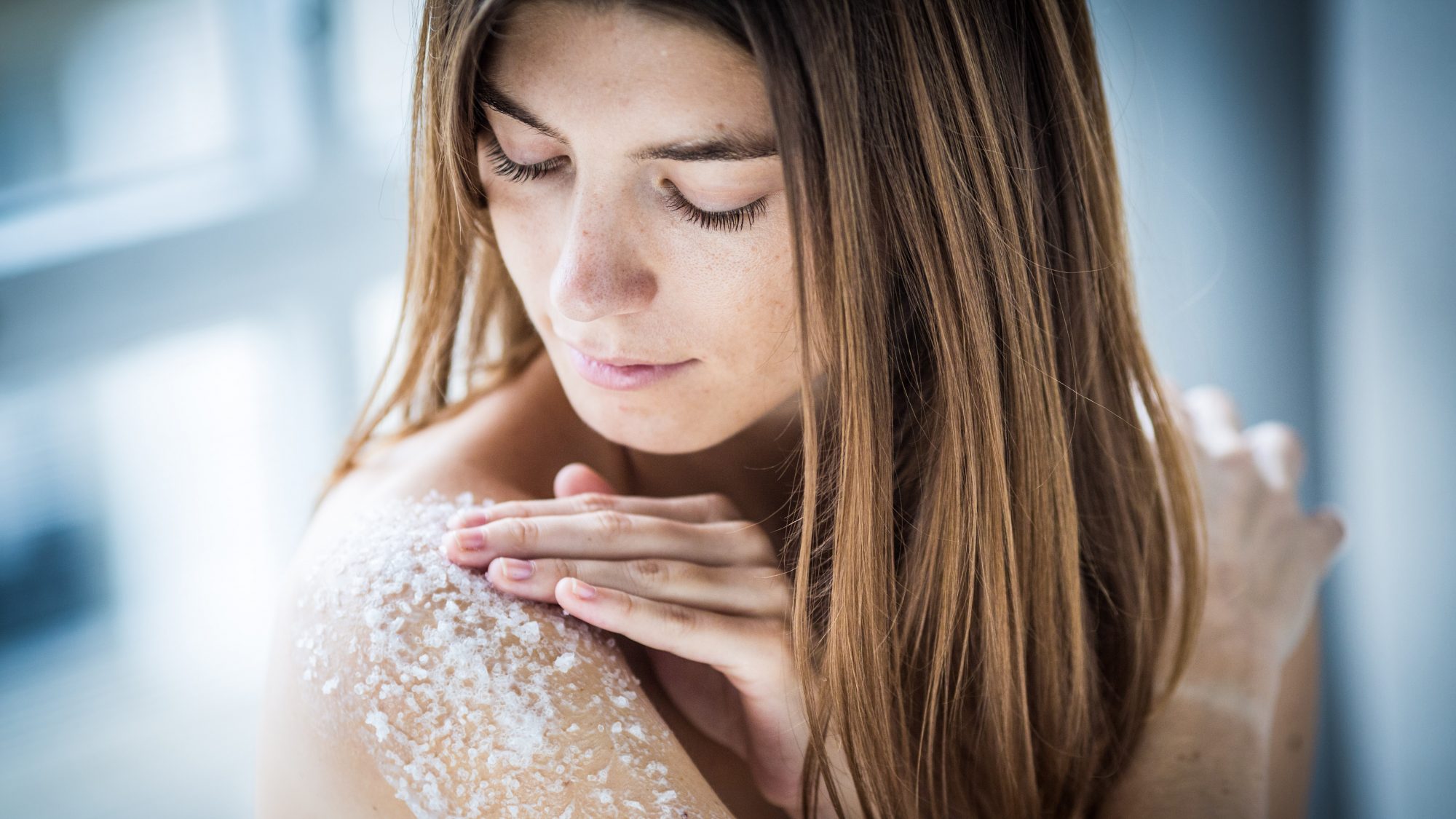Here's everything you need to know about pityriasis rosea
Apparently it’s a common skin condition (who knew?), but what is pityriasis rosea and how can you nix it? Nicola Moyne reports


Apparently it’s a common skin condition (who knew?), but what is pityriasis rosea and how can you nix it? Nicola Moyne reports
Pink, itchy rash? Apparently it’s that time of year. Pityriasis rosea is considered a fairly common skin condition among dermatologists, but it’s particularly prevalent during the spring and autumn months. Why? Well, no one’s sure, actually, because its exact cause is still unknown: no germ (bacterium, virus, fungus or otherwise) has ever been linked to the skin condition, and diet and lifestyle factors don’t seem to play a part either. However, we do know that despite sounding scary, pityriasis rosea is actually pretty harmless and often disappears of its own accord within eight weeks.
So how do you spot it? Matthew Gass, of the British Association of Dermatologists, says: ‘The first sign of pityriasis rosea is a single scaly patch, which is known as a ‘‘herald patch’’ because it comes up a few days or weeks before the rash spreads. The herald patch is usually a single round or oval patch on the torso. A week or two later, a more widespread scaly patchy rash usually appears on the body in a pattern that can resemble the branches of a Christmas tree. These patches appear in crops, then slowly fade over the next six to eight weeks.’
Think an army of small, often extremely itchy pimple clusters that gradually blanket parts of your body. Not nice. However, it’s unusual for the condition to reach your face and the rash won’t leave scars. Phew.
Plus, despite its dramatic tendencies, pityriasis rosea isn’t contagious or hereditary and normally has minimal side effects. Mild headaches and a touch of nausea or a slight fever are normal before the rash appears, though many sufferers report no other symptoms at all. If in doubt, though, always consult your GP.
What is Pityriasis rosea?
A pink, often extremely itchy rash that starts small, but soon spreads. Is pityriasis rosea contagious? The good news is no, it's not. The condition also won’t leave any scars, gradually disappears on its own and isn’t dangerous for your health. The bad news? It can last up to three months.
Pityriasis rosea causes
Some pros believe that the condition is initially triggered by a virus, as it often occurs in clusters. However, this hasn’t been substantiated by medical testing and the exact cause is still unknown. What we do know is that it normally affects people aged between 10 and 35 and seems to be most prevalent in spring and autumn. Experts are also certain that lifestyle and dietary choices have absolutely no impact on developing or treating pityriasis rosea, so eating your body weight in avocado isn’t going to protect you. Sorry.
Celebrity news, beauty, fashion advice, and fascinating features, delivered straight to your inbox!
Videos you may like:
Video you may like:
Pityriasis rosea treatments
The rash itself will naturally clear up, so no treatment isn't usually needed. However, if the itchiness is driving you mad, it’s best to avoid fragranced soaps, lotions and even synthetic fabrics as much as possible. And don't scratch. Specialists believe that scratching really does make the itching worse, so steer clear of the itch-scratch vicious cycle at all costs.
Some of the best moisturisers to help this condition will be of the unperfumed variety, and menthol creams may soothe inflamed skin, while antihistamine tablets could help to reduce the itching. If your symptoms are severe, your doctor may refer you to a skin specialist who can offer ultraviolet light treatment, too. This is popular among dermatologists and is often used to treat more serious skin conditions, such as psoriasis and eczema.
When to consult a doctor
If your rash is particularly severe or itchy, see your doctor to discuss your options. Constant itchiness can lead to sleep deprivation, so if you’re uncomfortable, book an appointment. Likewise, if you’re unsure of your symptoms or the rash hasn’t cleared up after two months, consult your GP, who may recommend a skin biopsy or blood tests to rule out other conditions.
For more information about pityriasis rosea, visit bad.org.uk

Nicola Moyne is a features and travel journalist who writes and edits for publications including The Telegraph, Sunday Times Style, Financial Times, HTSI, Wallpaper*, Grazia, House & Garden and Harper’s Bazaar. When she’s not working on an article, you’ll most likely find her horse riding or sailing the wide, meandering waters of Suffolk.